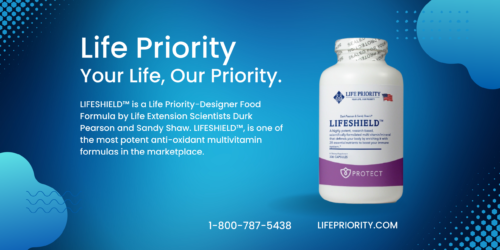

Men’s Guide to a Healthier Lifestyle
- by Life Priority
- Post Views: 82
Men’s health, it’s not an unknown fact: most men only go to the doctor when they are sick. This creates the generalization that men are much too casual or disinterested in their health. We urge that men (and women) get an annual physical so they can address any underlying concerns that may be present in their health so they can be referred to a specialist if need be. We also urge that men become at least a little interested in their health and start following these easy steps to live a balanced healthy lifestyle.
- Weight Management
Maintain a healthy weight through a well-balanced diet and exercise. The male body tends to change with age as testosterone levels begin to decline. Muscle mass becomes harder to keep and unhealthy pounds can start to add up. Make sure you are continuing exercise and staying active through these periods to avoid drastic changes in your muscle and heart health. Muscle Memory may be a good supplement to add to your diet if you have a need for muscle recovery and enhancement.
- Limit Trans-Fat Consumption
Trans-Fats are a threat to both our waistlines and hearts. According to the American Heart Association (AHA), more than one in three men have heart disease. The American diet that is full of processed, trans-fat ingredients doesn’t help this statistic. Arm yourself against heart disease risks by eliminating or limiting trans-fat in your diet. The AHA recommends closing out trans-fat consumption to 1 g a day. So become diligent in removing this harmful and in some cases, fatal ingredient.
- Eat More Fish
Start consuming more fish that contain essential fatty acids. The two essential fatty acids are Omega-6 and Omega-3. They are essential because our bodies don’t produce them on its own, we can only get them from our diets. Salmon, mackerel, herring, and albacore tuna all contain high amounts of essential oils. There is not set daily recommendation for essential oils, but some health organizations advise 250-500 mg per day. This number goes up if you have coronary artery disease. If you are not consuming enough fish in your diet alone, consider Omega-3 Priority for supplementation.
- Lycopene Influence
Lycopene is an antioxidant that gives certain foods their red coloring. This antioxidant is known for its anti-cancer properties most notably, prostate cancer. With prostate cancer being the second leading cause of cancer-related deaths in the United States, it is critical that men take preventative measures. Lycopene can be found in tomatoes, watermelon, guava and pink grapefruit. The most abundant of these sources are tomatoes, and lycopene’s impact is increased when the tomatoes are cooked. If you are a male and not getting enough of these foods in your diet, our Prostate Priority contains 30 mg per serving as well as other ingredients to help maintain healthy prostate functioning.
- Take a Multivitamin
Not all vitamins are created equal. Before purchasing, it is important to do your research and make sure that you are spending your money on a quality product. When it comes to multivitamins, their function is to fill any diet “holes” that you may have that are inhibiting your immune system operation. Lifeguard is packed with vitamins, minerals, and antioxidants to keep diets balanced and immune systems strong for fighting diseases.
- Maintain Regular Physicals with your Health Care Professional
As mentioned, men are the worst offenders of doctor visit ducking. It is important that you try to break that habit. A yearly physical can keep you in check and address any concerns should they arise. Men are more susceptible to stress, high blood pressure, high cholesterol, and depression so please make sure you are getting screened and treated for these and any other health concerns.
Guys, take our advice and incorporate these easy tips to become a healthier man!
Life Priority, established in 1994, offers supplements that are scientifically-formulated, results-oriented, and GRAS (Generally Recognized As Safe) and are manufactured at USDA and FDA inspected facilities.
*The products and statements made about specific products on this web site have not been evaluated by the United States Food and Drug Administration (FDA) and are not intended to diagnose, treat, cure or prevent disease. All information provided on this web site or any information contained on or in any product label or packaging is for informational purposes only and is not intended as a substitute for advice from your physician or other health care professional. You should not use the information on this web site for diagnosis or treatment of any health problem. Always consult with a healthcare professional before starting any new vitamins, supplements, diet, or exercise program, before taking any medication, or if you have or suspect you might have a health problem.
*Any testimonials on this web site are based on individual results and do not constitute a guarantee that you will achieve the same results.
Sign up for emails from OneHeartNetwork.com:
By providing your email address, you are agreeing to our privacy policy.



